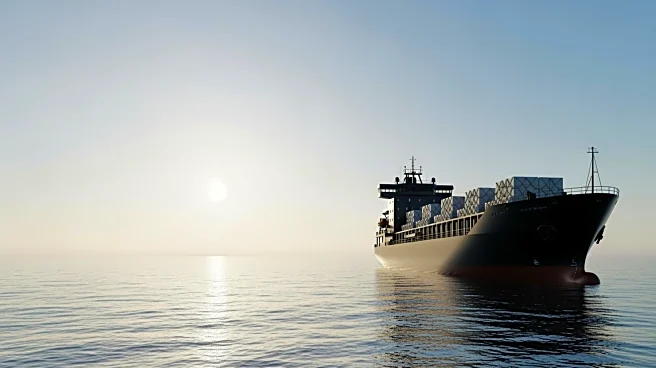What's Happening?
The United Arab Emirates (UAE) is set to increase its humanitarian aid to Gaza, utilizing Cyprus as a key maritime route for delivery. Minister of State Lana Nusseibeh emphasized the importance of this
route, which channels pre-screened aid from the East Mediterranean island to Gaza. The announcement was made at Limassol port in Cyprus, where aid is currently being accumulated for distribution. This initiative aims to provide a vital lifeline to the people of Gaza, who are facing severe shortages and humanitarian challenges.
Why It's Important?
The scaling up of aid to Gaza is crucial given the ongoing humanitarian crisis in the region. The use of Cyprus as a strategic route ensures that aid can be delivered efficiently and securely, minimizing delays and potential disruptions. This move by the UAE highlights the international community's efforts to address the dire needs of Gaza's population. The increased aid could significantly alleviate the suffering of many residents, providing essential supplies and support. It also underscores the geopolitical significance of Cyprus in facilitating humanitarian efforts in the Middle East.
What's Next?
The UAE's commitment to scaling up aid through Cyprus may prompt other nations to consider similar routes or partnerships to enhance their humanitarian efforts in Gaza. Monitoring the effectiveness and impact of this aid delivery will be crucial in assessing future strategies. Additionally, the collaboration between the UAE and Cyprus could lead to further diplomatic engagements and cooperative initiatives aimed at stabilizing the region.
Beyond the Headlines
The use of Cyprus as a key route for aid delivery to Gaza may have broader implications for regional diplomacy and international relations. It could strengthen ties between the UAE and Cyprus, potentially leading to increased cooperation in other areas such as trade and security. Furthermore, this initiative may set a precedent for other countries to explore innovative solutions for humanitarian aid delivery in conflict zones.








